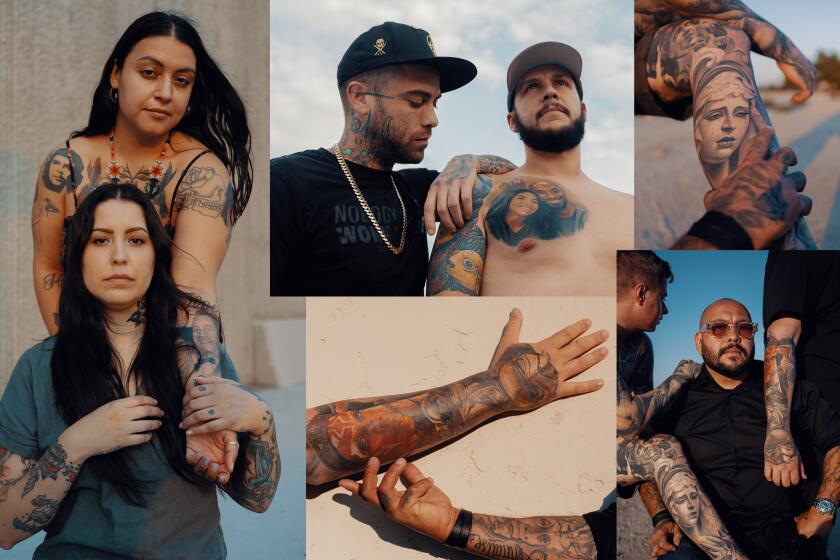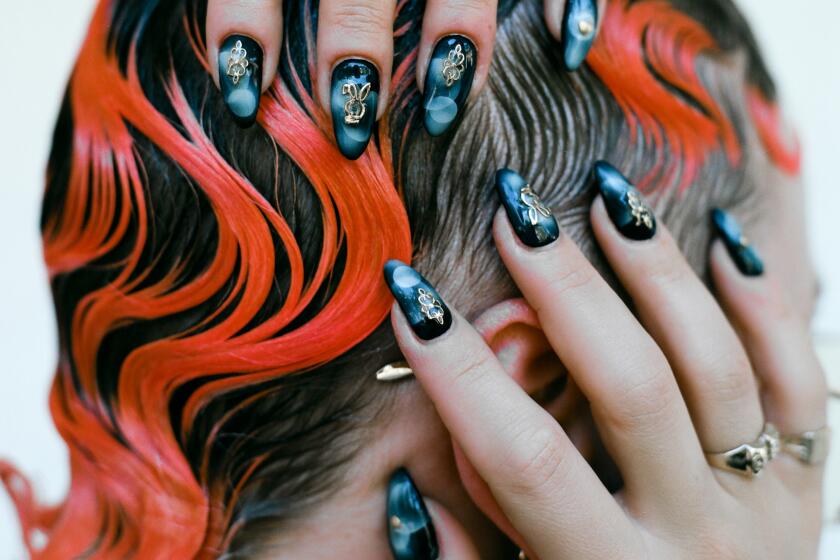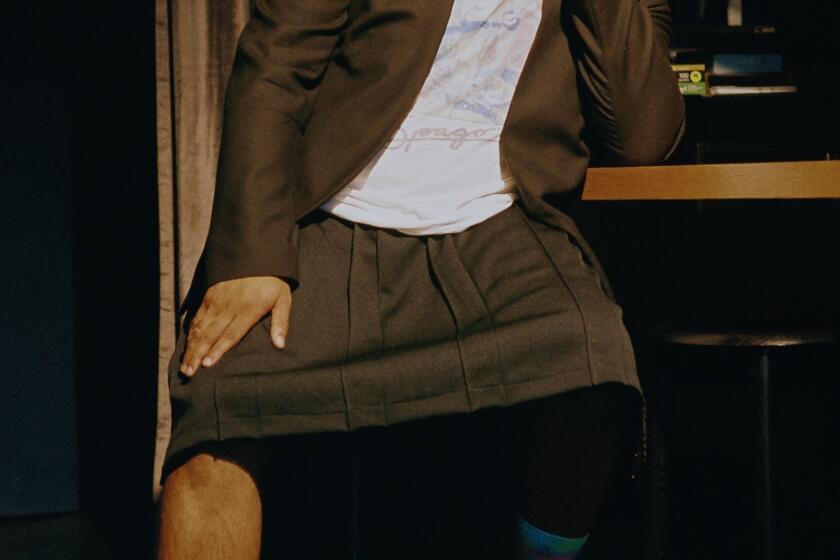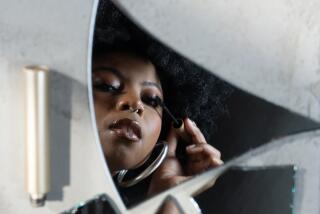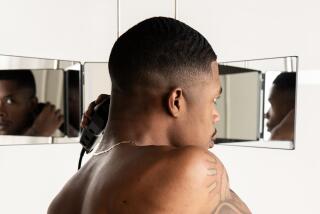
This story is part of Image issue 5, “Reverence,” an exploration of how L.A. does beauty. See the full package here.
Nyakio Grieco, a Los Angeles beauty entrepreneur, was unexpectedly thrust back into the spotlight in the summer of 2020. Her skincare line, Nyakio Beauty, had gotten a profile boost when it was bought by Unilever in 2016 and again when Target began carrying her collection of oils, balms and creams in February 2020. However, this newest burst of recognition wasn’t just about her skincare sales — it was about what she represented.
“I found myself on all those lists,” she says, referring to the slew of “Black-owned business” compilations that mainstream media outlets cranked out in response to a culture-shifting wave of racial injustice. “I was shocked by how many of those brands I’d never heard of before. I started going on their Instagram and websites and learned that a lot of them had very limited distribution.”
Along with friend Patrick Herning (founder and chief executive of size-inclusive fashion hub 11 Honoré), she set out to create an online platform that would center that underrepresented talent.
Their West Hollywood-based e-commerce site, Thirteen Lune, launched in December 2020 with a stable of 13 beauty brands. It now features more than 80 companies, 90% of which were created by Black and brown founders. Inventory includes an array of skin moisturizers, hair-care products, cosmetics and wellness items ranging from $8 to $225, from burgeoning brands and a few well-known names (think tennis icon Venus Williams).
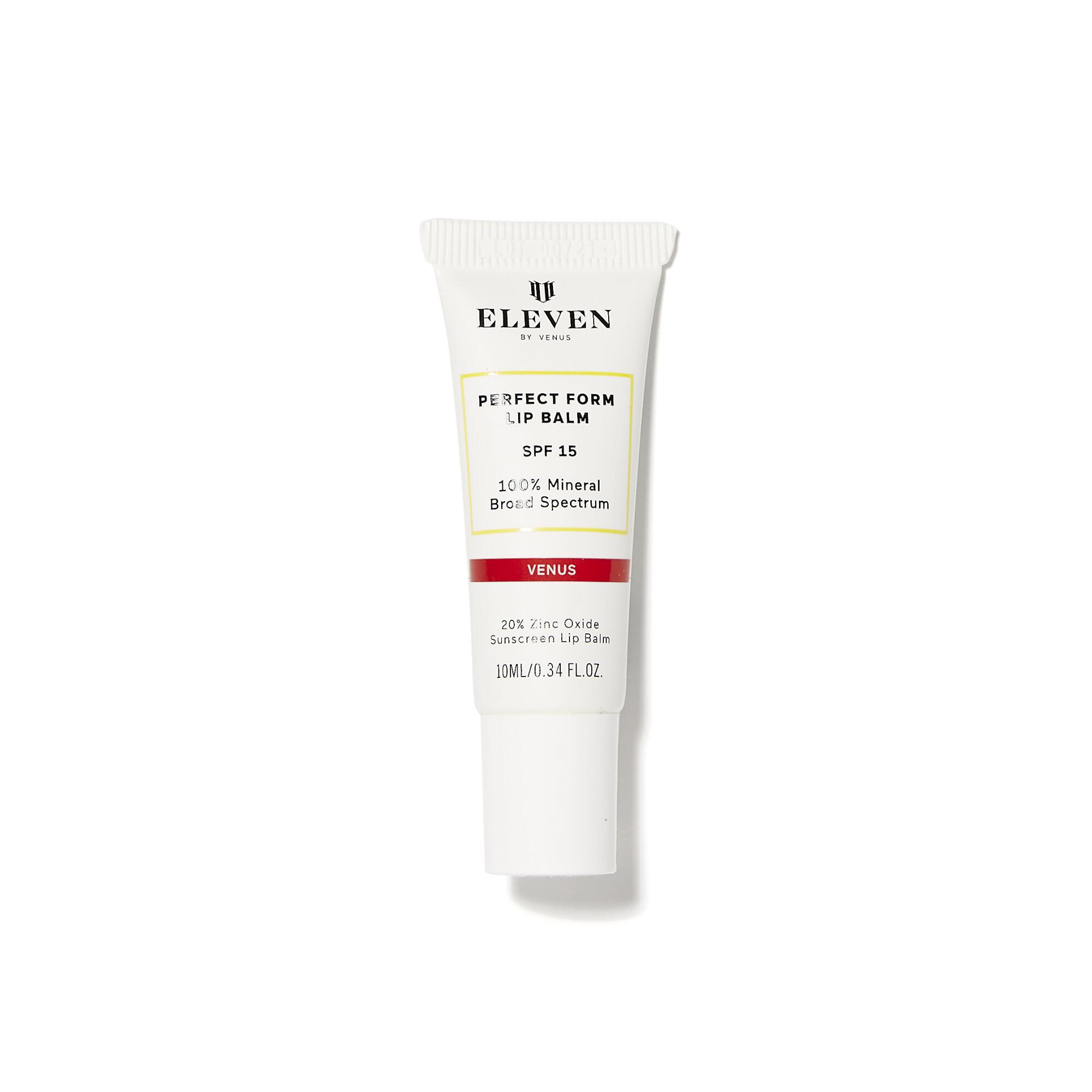
This month, Thirteen Lune debuts its first IRL shopping experience. The site has partnered with JCPenney to create “stores within a store,” where shoppers can peruse, test and purchase many of the site’s wares in person. The rollout begins with 10 maiden locations — including one in Whittier — with an additional 300 locations set to open in 2022 and full expansion to all JCPenney stores by 2023.
Image Reverence stories
Mr. Wash remembers that time Drake slid into his DMs
Julissa James unpacks the art of putting someone’s face on your body
Dave Schilling learns what it means to be beautiful in Comme Des Garçons
Jean Chen Ho explores grief through IG thirst traps
Darian Symoné Harvin dives deep into sideburn style
“For so many of these brands, this is their first chance to have national distribution,” she says. “We’re going to continue to amplify and help support them so they can take a bigger piece of the pie.”
For Grieco, teaming up with the century-old department store has been a full-circle moment. “I grew up in Norman, Okla.,” she says. “There was only one place my mom could get her foundation shade and that was the Fashion Fair counter at JCPenney.”
Recently we talked about her beauty roots as well as her perspective on the industry’s current landscape.
How do you feel the beauty industry has changed since you launched Nyakio Beauty?
I started 19 years ago, inspired by Kenyan family beauty secrets that had been passed down to me. I felt that African beauty was underrepresented at the time, especially in premium beauty. There were not a lot of people [in the beauty business] who looked like me and definitely not a lot of women. I feel less alone now because there are more people of color coming to the table. It’s still very hard to raise money as a Black person. There’s been a lot of forward movement, but from the lens of finance, it’s still pretty tough. But what I love the most is that I can actually say that out loud now. For a long time, I couldn’t.
For the past two years, so many of us have gone out less and covered our faces when we have gone out — do you feel the pandemic has shifted our priorities in terms of beauty?
People really learned how to be their own aestheticians, their own hairstylists and kind of their own doctors. We were learning about how the constant wearing of masks was affecting our skin and educating ourselves about things like blue-screen light and how, even though we weren’t getting a lot of sunlight, we were getting a lot of ultraviolet rays from our computers and phones. And in terms of wellness, taking care of our gut health and making sure that we’re destressing during this pandemic.
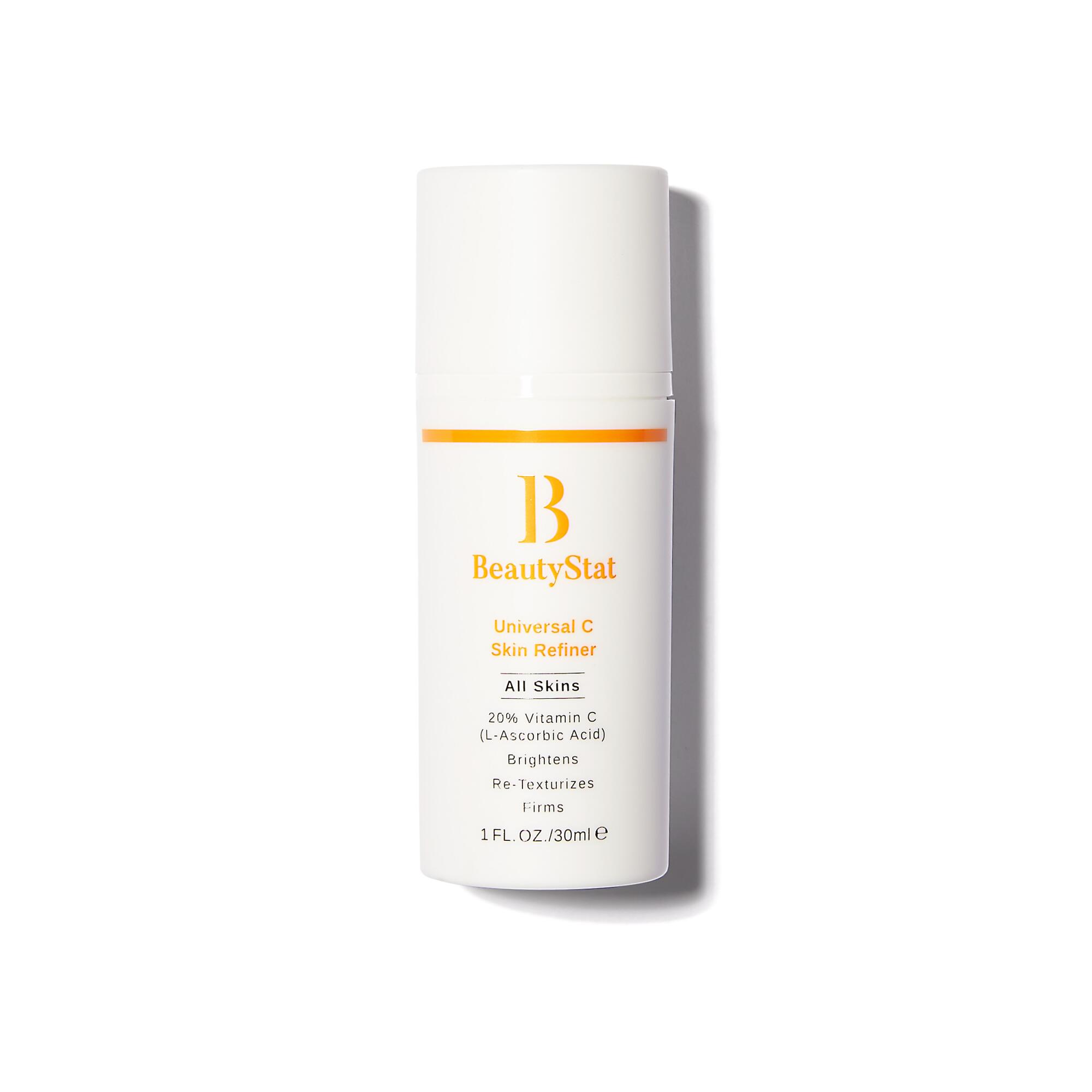
What are some key steps in your daily regimen?
I always start with my sweet almond cleansing balm, as a me-time treatment. I apply it, heat up a washcloth until it’s really hot, then put it on my face. It’s almost like giving myself a steam every morning with some moments for deep breathing. Then I use a cleanser by Holifrog to balance out my skin’s pH, followed by BeautyStat’s vitamin C serum that helps with my hyperpigmentation and gives me an even skin tone. Then, I use an eye cream from Goop, one of our ally brands. I have hereditary dark circles under my eyes, plus two businesses, two children and a life, so I deal with puffiness, fine lines and wrinkles.
You’ve praised your 15-year-old daughter, Lulu, as an aspiring beauty entrepreneur. How do you view her and the rest of Gen Z’s relationship with beauty?
I love the freedom that Gen Z has to experiment, and the fact that they have YouTube to educate themselves. My daughter loves to discover and support new BIPOC-founded brands and she’s really passionate about clean beauty. She’ll teach me things that I don’t know about — like products that are microbiome-safe — and it’ll send me into my own rabbit hole of research.
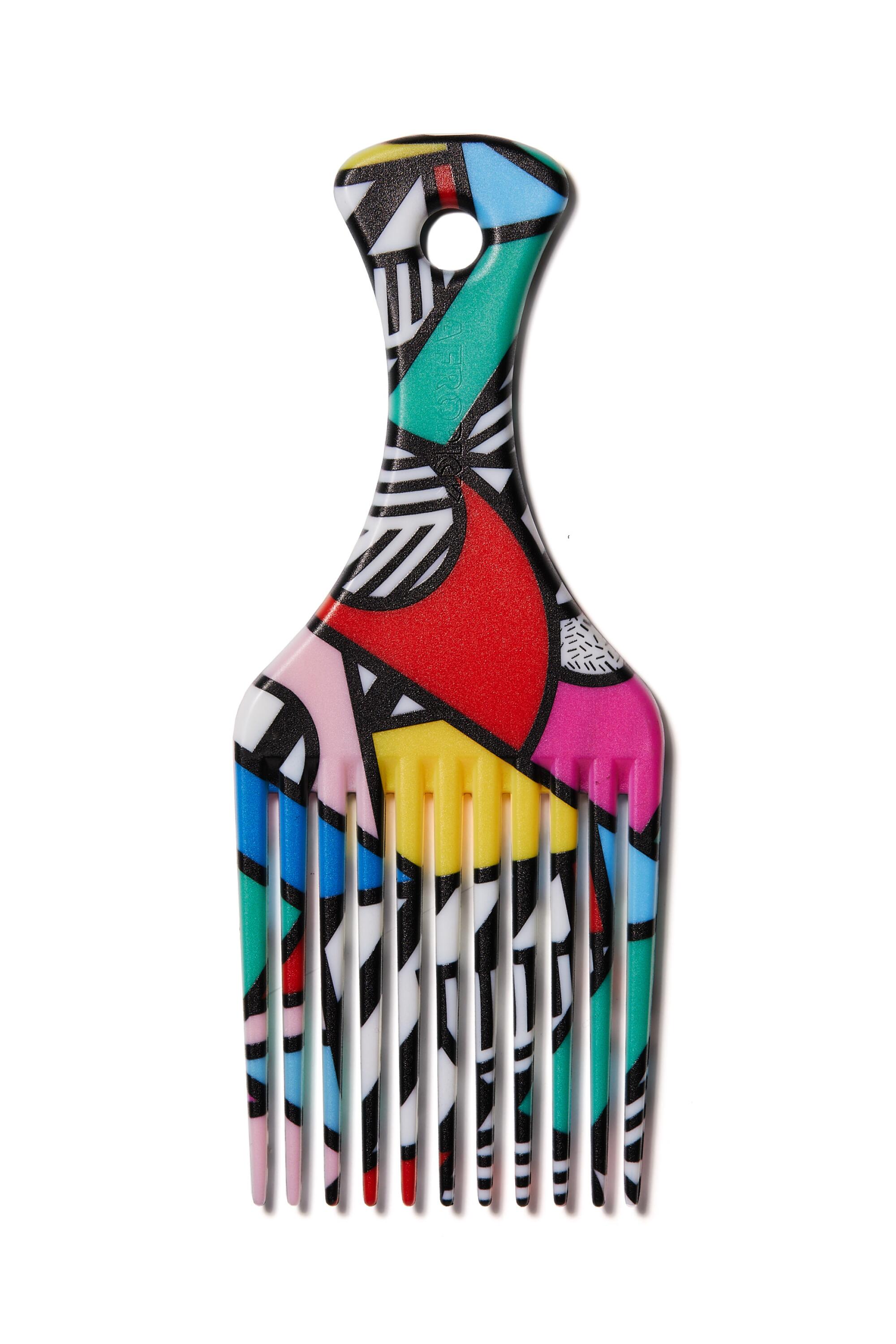
She’s gotten me into embracing the natural texture of my hair. I never even knew if my curl pattern was a 3C or a 4C! Also, she’s inspired my desire to play a little bit more with makeup and not keep it so traditional with my usual berries and browns. Just the other day, I wore turquoise on my eyes and I loved it.
What are some standout products shoppers can look forward to when they shop Thirteen Lune in person?
Afropick makes stunning handcrafted hair picks that look like pieces of art. And just because you don’t have an Afro doesn’t mean you can’t use a pick; you can use it to fluff out your curls. And Cece Meadows’ beauty brand Prados has an eyeshadow palette with 30 shades, all inspired by Native American customs. When we launch at JCP, she will become one of the first Native American female makeup founders carried by a national retailer.
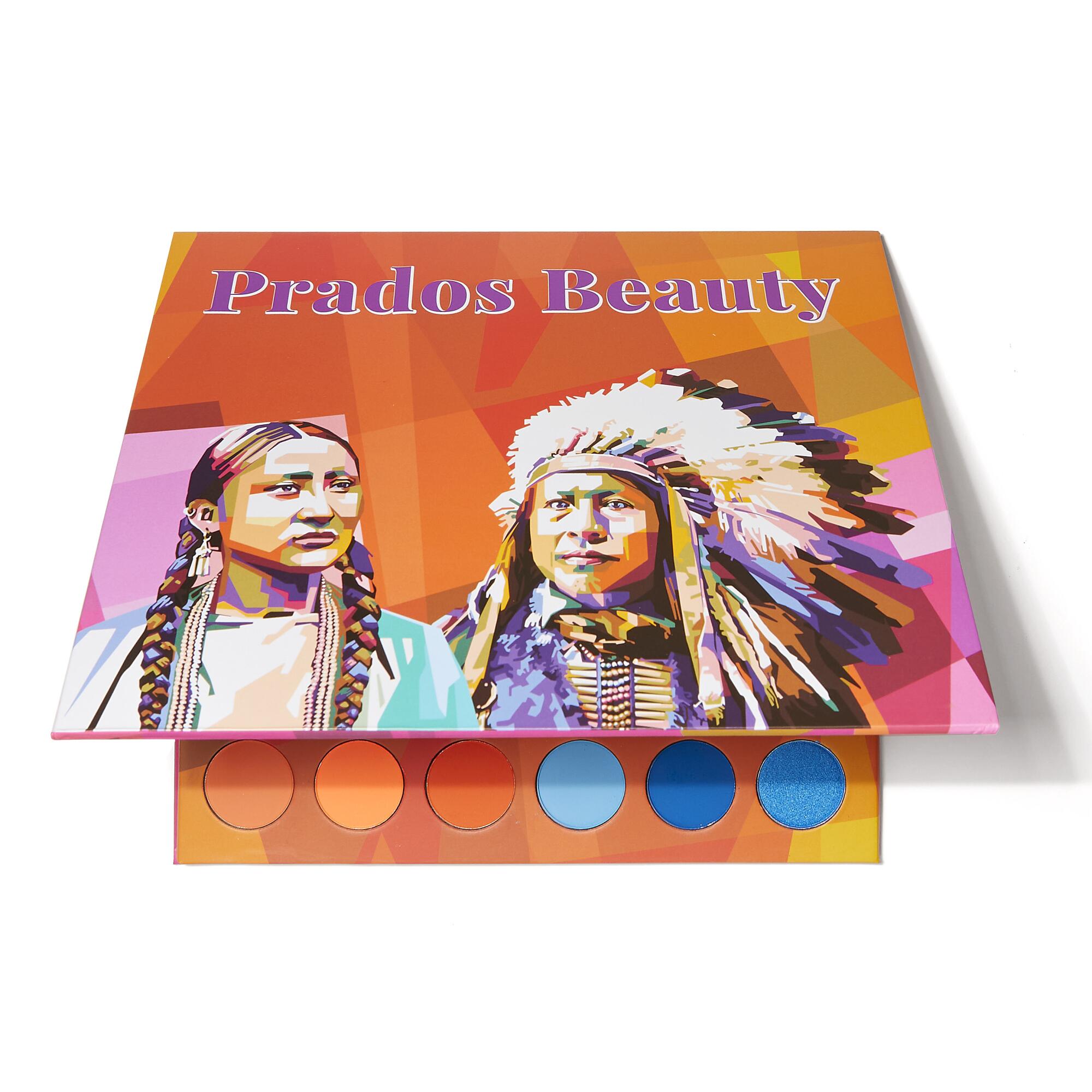
What new business ideas are you excited to pursue next?
I’m 48 and I’m noticing more and more every year how little brands are speaking to my friends and I, who continue to be big purchasers of beauty items. I want to find a way to authentically connect with women my age and older.
I also want to use my experience as a beauty founder to help other brands get to success quicker. I’m thrilled to have finally made it to the shelves of Target, but it shouldn’t have taken 19 years. So many of my delays really had to do with not aligning with the right partners or not having access to capital. I want to do an even deeper dive into mentorship and helping other founders avoid the mistakes I’ve made.
